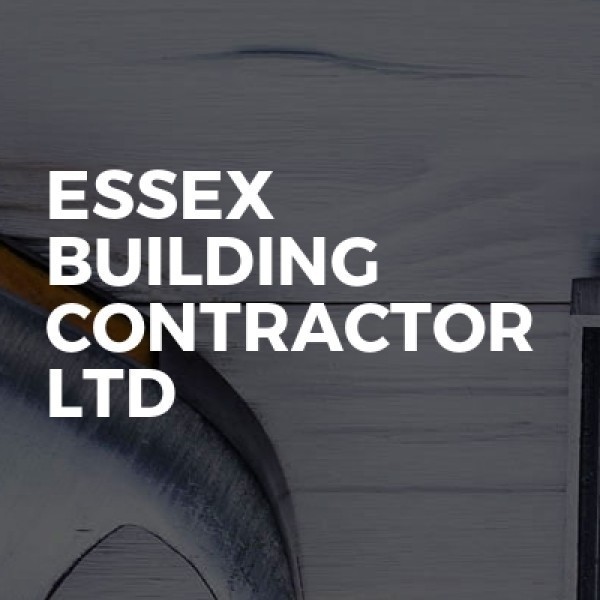Introduction to Garage Conversions in Westminster
Garage conversions in Westminster have become a popular choice for homeowners looking to maximise their living space without the hassle of moving. With property prices soaring and space at a premium, converting a garage into a functional room offers a practical solution. Whether you're considering a new home office, an extra bedroom, or a playroom for the kids, a garage conversion can add significant value to your home. In this article, we'll explore the ins and outs of garage conversions in Westminster, providing you with all the information you need to embark on this exciting home improvement journey.
Understanding the Benefits of Garage Conversions
Garage conversions offer a plethora of benefits that make them an attractive option for homeowners. Firstly, they provide additional living space without the need for an extension, which can be both costly and time-consuming. Secondly, a well-executed conversion can significantly increase the value of your property, making it a wise investment. Moreover, garage conversions are versatile, allowing you to tailor the space to meet your specific needs, whether it's a cosy guest room or a state-of-the-art home gym. Lastly, converting a garage is often more environmentally friendly than building anew, as it utilises existing structures and materials.
Financial Advantages
One of the most compelling reasons to consider a garage conversion is the financial benefit. Compared to other home improvement projects, garage conversions are relatively cost-effective. They typically require less structural work, which keeps costs down. Additionally, the increase in property value often outweighs the initial investment, providing a good return on investment.
Enhanced Living Space
For families in need of more room, a garage conversion can be a game-changer. It offers a seamless way to expand your living area without encroaching on your garden or outdoor space. This additional space can be used for a variety of purposes, from a new bedroom to a hobby room, making it a flexible solution for growing families.
Planning Permission and Regulations
Before embarking on a garage conversion in Westminster, it's crucial to understand the planning permission and regulations involved. While many garage conversions fall under permitted development rights, meaning you won't need formal planning permission, there are exceptions. For instance, if your property is listed or located in a conservation area, you'll likely need to seek approval from the local council.
Building Regulations Compliance
Regardless of planning permission, all garage conversions must comply with building regulations. These regulations ensure that the conversion is safe, energy-efficient, and suitable for habitation. Key areas covered by building regulations include structural integrity, fire safety, insulation, and ventilation. It's advisable to consult with a professional architect or builder to ensure your project meets all necessary standards.
Consulting with Local Authorities
Engaging with local authorities early in the planning process can save you time and hassle down the line. They can provide guidance on any specific requirements for your area and help you navigate the application process. It's also worth checking if there are any restrictions on your property that could impact your conversion plans.
Designing Your Garage Conversion
Designing your garage conversion is an exciting part of the process, allowing you to transform a utilitarian space into a functional and stylish room. The design should reflect your personal style while also considering practical aspects such as lighting, heating, and storage.
Choosing the Right Layout
The layout of your converted garage will largely depend on its intended use. For instance, a home office might require built-in desks and shelving, while a guest room would benefit from a comfortable bed and wardrobe space. Consider how the space will be used and plan the layout accordingly to maximise functionality.
Incorporating Natural Light
Garages often lack natural light, so it's important to incorporate windows or skylights into your design. This not only enhances the aesthetic appeal of the room but also creates a more inviting and comfortable environment. If adding windows isn't feasible, consider using light-coloured paint and strategic lighting to brighten the space.
Cost Considerations for Garage Conversions
The cost of a garage conversion can vary widely depending on factors such as size, design complexity, and the quality of materials used. On average, homeowners can expect to spend between £10,000 and £20,000, although high-end conversions can exceed this range.
Budgeting for Your Project
Creating a detailed budget is essential for keeping your project on track. Start by obtaining quotes from multiple contractors to get a sense of the going rate for labour and materials. Don't forget to factor in additional costs such as planning fees, building regulations approval, and any unforeseen expenses that may arise during construction.
Financing Options
If you're concerned about the upfront cost of a garage conversion, there are several financing options available. Home improvement loans, remortgaging, or using savings are common ways to fund the project. It's important to choose a financing option that suits your financial situation and won't put undue strain on your finances.
Finding the Right Contractor
Choosing the right contractor is crucial to the success of your garage conversion. A skilled and experienced contractor will ensure that the project is completed to a high standard, on time, and within budget.
Researching Potential Contractors
Start by researching potential contractors in your area. Look for those with a proven track record in garage conversions and positive customer reviews. It's also a good idea to ask for recommendations from friends or family who have undertaken similar projects.
Evaluating Quotes and Contracts
Once you've shortlisted a few contractors, request detailed quotes from each. Compare these quotes carefully, considering not only the cost but also the scope of work and timeline. Before signing a contract, ensure that it includes all agreed-upon details and protects your interests in case of disputes.
Common Challenges and Solutions
While garage conversions can be straightforward, they do come with their own set of challenges. Being aware of these potential issues can help you plan effectively and avoid common pitfalls.
Dealing with Structural Issues
Older garages may have structural issues such as dampness or inadequate foundations. Addressing these problems early on is crucial to ensure the longevity and safety of your conversion. A professional survey can identify any underlying issues that need to be rectified before work begins.
Managing Space Constraints
Garages are often smaller than other rooms in the house, which can pose a challenge when designing the layout. To make the most of the available space, consider using multifunctional furniture and clever storage solutions. Built-in shelving and fold-away furniture can help maximise space without compromising on style.
Maximising Energy Efficiency
Energy efficiency is an important consideration for any home improvement project, and garage conversions are no exception. By incorporating energy-efficient features, you can reduce your carbon footprint and save on utility bills.
Insulation and Heating
Proper insulation is key to maintaining a comfortable temperature in your converted garage. Insulate walls, floors, and ceilings to prevent heat loss and reduce energy consumption. Additionally, consider installing energy-efficient heating solutions such as underfloor heating or a modern radiator.
Energy-Efficient Lighting
Lighting plays a crucial role in the energy efficiency of your conversion. Opt for LED lights, which consume less energy and have a longer lifespan than traditional bulbs. Installing dimmer switches can also help you control the amount of light used, further enhancing energy savings.
Legal and Insurance Considerations
Before starting your garage conversion, it's important to address any legal and insurance considerations. This will protect you from potential liabilities and ensure that your conversion is compliant with all relevant regulations.
Updating Your Home Insurance
Once your garage conversion is complete, you'll need to update your home insurance policy to reflect the changes. This ensures that your new space is covered in the event of damage or theft. Contact your insurance provider to discuss any necessary adjustments to your policy.
Understanding Legal Obligations
In addition to building regulations, there may be other legal obligations to consider, such as party wall agreements or leasehold restrictions. It's important to address these issues early on to avoid any legal complications during or after the conversion process.
Case Studies of Successful Garage Conversions
To inspire your own project, let's take a look at some successful garage conversions in Westminster. These case studies highlight the creativity and innovation that can be achieved with a well-planned conversion.
From Garage to Home Office
One homeowner transformed their unused garage into a stylish home office, complete with custom-built desks and ample storage. By incorporating large windows and a skylight, they created a bright and airy workspace that enhances productivity and comfort.
A Cosy Guest Suite
Another successful conversion saw a garage turned into a cosy guest suite, featuring a comfortable bed, en-suite bathroom, and kitchenette. This self-contained space provides privacy for guests and adds significant value to the property.
Frequently Asked Questions
- Do I need planning permission for a garage conversion in Westminster? In most cases, garage conversions fall under permitted development rights, but it's always best to check with your local council.
- How long does a garage conversion take? The duration of a garage conversion can vary, but most projects are completed within 4 to 6 weeks.
- Can I convert a detached garage? Yes, detached garages can be converted, although they may require additional considerations such as plumbing and electrical connections.
- Will a garage conversion add value to my home? Yes, a well-executed garage conversion can significantly increase the value of your property.
- What are the most common uses for a converted garage? Common uses include home offices, guest rooms, playrooms, and gyms.
- How can I ensure my garage conversion is energy-efficient? Focus on proper insulation, energy-efficient lighting, and modern heating solutions to maximise energy efficiency.
Final Thoughts on Garage Conversions in Westminster
Garage conversions in Westminster offer a fantastic opportunity to enhance your living space and add value to your home. By carefully planning your project, adhering to regulations, and choosing the right design and contractor, you can transform an underutilised area into a functional and stylish room. Whether you're looking to create a home office, guest suite, or playroom, a garage conversion can provide the perfect solution to meet your needs. With the right approach, your garage conversion can become a valuable asset that enhances your lifestyle and property value.

























